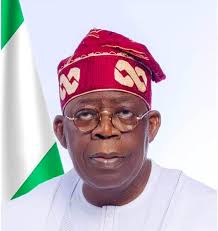President Tinubu’s Nationwide Broadcast on Protests and Economic Reforms
On Sunday, 4th August 2024, President Bola Ahmed Tinubu addressed the nation in a televised broadcast that covered the recent nationwide protests, the tragic loss of life in several states, and the major economic reforms his administration has implemented since taking office. The speech arrived at a delicate moment: young Nigerians and civil society groups were mobilising to express frustration with rising costs and governance issues, and the President used the address to both condemn violent excesses and defend policy choices made to stabilise the economy.
Condolences and a Call for Peace
President Tinubu opened by offering condolences to families who lost loved ones during demonstrations in states including Borno, Jigawa, Kano and Kaduna. He strongly condemned the destruction of public infrastructure and the looting of shops and supermarkets, warning that such actions set the country back by diverting scarce resources to restoration efforts.
The President urged organisers and protesters to suspend further demonstrations and create space for dialogue. He emphasised that Nigeria’s unity is fragile and must be protected, and reminded citizens that lawful avenues exist for airing grievances.
Security, Rule of Law and Responsible Policing
Reiterating his constitutional duty to protect lives and property, Tinubu assured Nigerians that security agencies would act to restore order. He warned anyone exploiting unrest for political or ethnic ends that the law will catch up with them, and urged law enforcement to discharge their responsibilities while respecting human rights.
Read Nigeria’s 1999 Constitution on Presidential Duties
Defending Tough Economic Reforms
One of the most sensitive segments of the broadcast addressed the removal of fuel subsidies and the abolition of multiple foreign exchange systems — moves the President described as painful but necessary to correct long-term economic distortions. According to the address, these steps helped block avenues of rent-seeking and smuggling while redirecting resources to critical public services.
Tinubu pointed to fiscal progress: aggregate government revenues rose to ₦9.1 trillion in the first half of 2024 compared with the same period in 2023, and debt-service pressures were reduced markedly. The President argued these gains create room to invest in healthcare, education and state-level services.
Infrastructure and Industry
The administration highlighted an ambitious infrastructure agenda, naming projects such as the Lagos–Calabar Coastal Highway and the Sokoto–Badagry Highway. These projects are presented as engines for jobs, trade and integration across multiple states.
In addition, the speech referenced efforts to stabilise oil and gas production, noting an increase to 1.61 million barrels per day and renewed investor interest following reforms to the Petroleum Industry Act.
Compressed Natural Gas (CNG) Initiative
To reduce transport costs and curb fuel import dependency, the President outlined a national push for Compressed Natural Gas (CNG). The plan includes the distribution of conversion kits and the establishment of conversion centres, which the administration says could lower transport fuel costs by approximately 60%. The government aims to distribute one million conversion kits to commercial vehicle operators.
More on Nigeria’s CNG initiative
Youth Empowerment and Social Programmes
Recognising the central role of youth in the protests, Tinubu outlined programmes meant to create opportunities for young people. Notable mentions included the Student Loan Scheme (with ₦45.6 billion processed for payment), the Consumer Credit Corporation (with over ₦200 billion to support consumer credit), and the Digital and Creative Enterprises (IDiCE) programme which secured approximately $620 million in support.
The speech also referenced the 3 Million Technical Talents initiative, the Skill-Up Artisans Programme (SUPA), the National Youth Academy (NIYA), and other youth-targeted schemes.
Support for Small Businesses and Workers
Tinubu highlighted the disbursement of grants to nano-businesses and the rollout of single-digit interest loans to micro and small enterprises. The address also noted that 75,000 beneficiaries would receive ₦1 million loans and that larger manufacturers are receiving support to boost production.
On labour policy, the President signed a new National Minimum Wage into law, setting the floor for the lowest-paid workers at ₦70,000 per month — a move framed as part of broader social protection efforts.
Housing, Food Security and Agricultural Support
As part of the Renewed Hope housing initiative, the government plans housing estates across the country with a target of 100,000 housing units over the next three years. The Karsana project in Abuja is cited as an early example with 3,212 units.
On food security, Tinubu announced temporary removal of tariffs on staples — including rice, wheat and maize — and pledged the distribution of mechanised farming equipment and fertilisers to expand cultivated land. The administration’s target is to plant over 10 million hectares to boost domestic food production and reduce import dependence.
FAO: Nigeria agriculture updates
Closing Remarks: Unity and Forward Momentum
President Tinubu closed by appealing for national unity and urging Nigerians to reject violence and misinformation. He repeated his administration’s mantra of renewed hope and urged citizens to give reforms time to produce results, asking them to prioritise progress over disruption.
“Forward ever, backward never.”
The broadcast is both a defence of tough economic choices and an invitation to dialogue. While acknowledging the pain caused by the reforms, the President asked for patience and cooperation as the administration works to stabilise the economy and deliver long-term benefits.
Takeaway: The nation stands at a crossroads. Tinubu framed his policies as necessary corrections to decades-long mismanagement, while also urging citizens and youth to engage through peaceful dialogue rather than destruction. Observers will watch how the government translates pledges into visible improvements in living standards over the coming months.
Related reading
- History of Protests in Nigeria: From 1999 to 2024
- Impact of Nigeria’s New Minimum Wage on Workers and Employers
Outbound sources & further reading:

